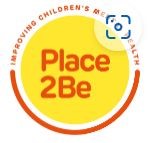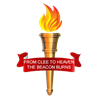Useful Mental Health Documents
Mental Health top tips for children
Mental Health top tips for families
Support for Parents and Carers
Does my child or young person need mental health support?
It's normal to feel angry, sad, worried or stressed sometimes. However, your child might need extra support if they struggle to cope with those feelings.
Look out for:
- sudden changes in behaviour
- negative thoughts and low self-esteem
- arguing and fighting
- sleep problems
- avoiding school or staying with you all the time
- aches and pains.
Remember – everyone is different, and these signs might not be related to a mental health problem.
Children and young people can be affected by significant changes like:
- death or illness in the family
- parents separating
- moving school or moving house
- tests and exams
- adolescence and puberty
- relationship and friendship problems.
Try talking to them first. If you're worried, Place to Be offer lots of support to parents or arrange a meeting with our Senior Mental Health Lead, Ceri Little.

Seeking help from outside agencies
Accessing the BeeU service:
- Direct digital support is a crucial part of the BeeU offer, and children and young people will continue to be able to directly access Kooth (kooth.com) without the need for a referral being made. Kooth is an online emotional wellbeing community for children and young people aged 11 to 25 offering 24/7 free emotional support on an anonymous basis.
- Direct telephone support – call 0808 196 4501, MPFT’s Freephone helpline available 24/7 for people of all ages seeking mental health support.
- Making a referral – children, young people and their families can speak to their GP, school or other health/education professional to request a referral into BeeU. It is best if a professional who knows the child well, and can therefore provide good information on the child’s strengths and difficulties, makes the referral.
The service has updated its referral forms to access Mental Health, Neurodevelopmental or Community Eating Disorder support, and these can be found on BeeU’s web page at https://camhs.mpft.nhs.uk/beeu
Please ensure to complete the relevant form if you wish to make a referral into BeeU. The web page provides more information on the referral process, including how to submit a completed referral.
An enhanced approach has been introduced for those seeking to make a referral to access BeeU’s Neurodevelopmental assessment offer, and increasing the workforce allows for further integration of the previously separate Autism and ADHD processes.
Healios (www.healios.org.uk) works in partnership with MPFT. BeeU and other services can refer children and young people to access online psychological therapies.
Other mental health and wellbeing support available:
- Childline: a free, private, and confidential service where young people can talk about anything. Calls are free and confidential. Calls are not recorded, and its number won't show up on any phone bills. Call 0800 1111 (24 hours a day, every day).
- Shout: confidential crisis text support for times when immediate assistance is required. Text ‘SHOUT’ to 85258 (24 hours a day, every day).
- YoungMinds: a mental health charity for children and young people. Whether you want to understand more about how you're feeling and find ways to feel better, or you want to support someone who's struggling, Young Minds can help.
 children completed activities about mental health, wore yellow to ‘ wear it loud, wear it proud’ and raised over £117 for young minds. The community club did a fabulous job of running this event – well done Year 6s!
children completed activities about mental health, wore yellow to ‘ wear it loud, wear it proud’ and raised over £117 for young minds. The community club did a fabulous job of running this event – well done Year 6s!
 emotions, develop healthy coping strategies and seek appropriate support. By talking openly about mental health issues, we aim to break down any associated stigma.
emotions, develop healthy coping strategies and seek appropriate support. By talking openly about mental health issues, we aim to break down any associated stigma.








